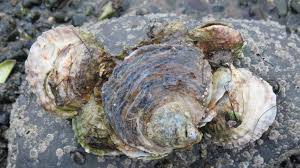Aberdeen University and NativeAqua partnering on one-year project focused on improving resilience and commercial viability of native oyster stocks
A new, targeted study is set to use cutting-edge genetic analysis to tackle the drastic decline of the UK’s native oyster (Ostrea edulis), a critical species for both the marine environment and commercial aquaculture.
Scientists from the University of Aberdeen, in collaboration with commercial partner NativeAqua, have secured £14,300 in funding for a one-year project focused on boosting the resilience and commercial viability of the species.
The native oyster population has been devastated in recent years due to pressures including overfishing of wild stocks and climate change. However, as noted by Dr Victoria Sleight, who is leading the project at the University of Aberdeen, these shellfish are ‘small underwater miracles’ that carry out a vital role in marine ecosystems. Oysters filter seawater, extracting nutrients and tackling harmful nutrient run-off from human land use.
Crucially for biodiversity, they form complex three-dimensional reef habitats for other species to live in.
The research aims to inform a new breeding programme using data-driven genetic approaches. This will involve analysing the genetic fingerprint of individuals to optimise breeding pairs for the strongest, most robust offspring. This is the first time modern genetic analysis and selection techniques have been used to study the native oyster.
For the commercial sector, the research offers a promising way forward. Dr Tom Ashton, co-founder of NativeAqua, noted that the native oyster is a notoriously difficult species to farm due to its ‘poor robustness and slow growth’. The collaboration’s goal, he said, is to ‘develop a strong bloodline that performs well on commercial farms’.
Dr Sleight explained that every healthy native oyster releases one to two million larvae into the ocean, so farming and breeding the species to improve climate change resilience will not only enhance commercial shellfish aquaculture industries but also restore natural populations.
The funding for the project has been awarded by the Scottish Universities Life Sciences Alliance and The Data Lab.
Source - https://fishingnews.co.uk













